Entrepreneurship and starting a business is on the rise across all demographics, with 53% of Shopify store owners identifying as women. Hurrah!
That said, women everywhere continue to face a broad set of challenges when it comes to growing an independent small business. An obvious one is funding bias: men are twice as likely as women founders to receive funding from banks. A less obvious challenge is systemic. For example, family responsibilities tend to land more on women than men, and the pandemic has shone a glaring light on this.
But it's not all doom and gloom. Despite the dreary stats, many women business owners have, and do, thrive. 💪
For Women's History Month, we're highlighting a few women entrepreneurs who have inspired us in the past year with their resilience, tenacity, and impact. From household names like Phenomenal Woman to a bonafide Italian nonna who runs virtual cooking classes—these are the faces of entrepreneurship at their best.
1. Girls Chronically Rock
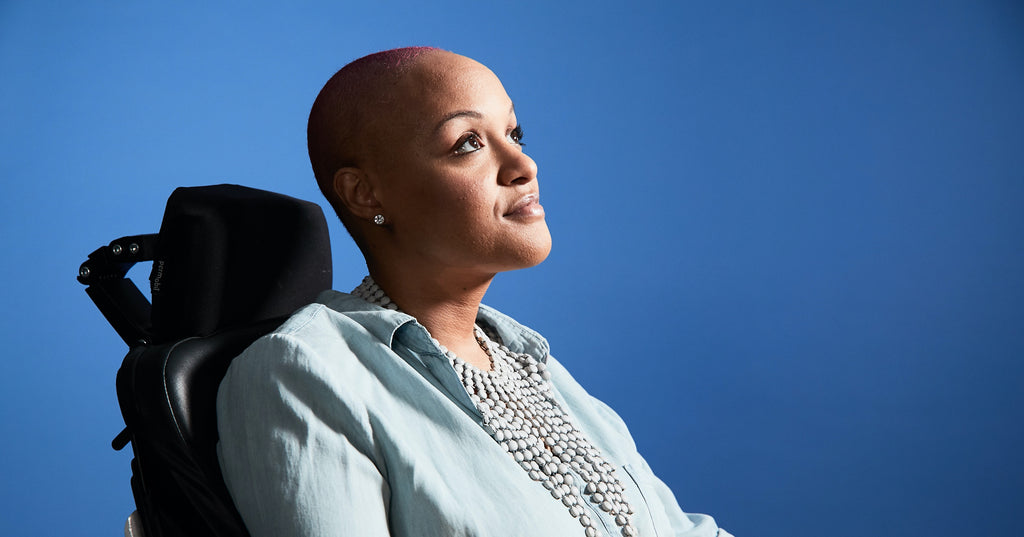 Twelve years ago, Keisha Greaves received a diagnosis that radically changed the course of her life. After she suffered a sudden collapse at the supermarket, a visit to a neurologist revealed she had limb-girdle muscular dystrophy, something that threatened to derail her dreams of pursuing a fashion career.
Twelve years ago, Keisha Greaves received a diagnosis that radically changed the course of her life. After she suffered a sudden collapse at the supermarket, a visit to a neurologist revealed she had limb-girdle muscular dystrophy, something that threatened to derail her dreams of pursuing a fashion career.
Keisha started a blog and then eventually opened up an online store selling high-quality graphic tees that featured inspirational messages for the Black disabled community. When her new business grew, she moved her store to Shopify to accommodate the increasing orders.
"As it started to grow, I thought, ‘It’s time to get a more professional branded website. It’s time to put my dreams to use.’”
Now in addition to being a clothing designer, she's become a motivational speaker for the Black disabled community, sharing her story at schools and in industry panels.
“I speak to young kids on a regular basis,” she says. “I tell them, ‘You can accomplish and do anything you want to.’"
2. Royal Soaps
 Katie Carson didn't intend to become a YouTube star. She just really loved making artisan soaps from her parents' home in Texas. After taking a soap-making class at 16, she was obsessed. Her days became filled with making fragrant and colorful hand-crafted soaps with whimsical names like unicorn frappuccino and pineapple flamingo.
Katie Carson didn't intend to become a YouTube star. She just really loved making artisan soaps from her parents' home in Texas. After taking a soap-making class at 16, she was obsessed. Her days became filled with making fragrant and colorful hand-crafted soaps with whimsical names like unicorn frappuccino and pineapple flamingo.
“I just really loved it,” she says. “I talked to my parents, and I said, ‘Hey, I think this is something I really want to pursue.’”
She launched her online store, Royalty Soaps, first on Etsy and then on Shopify when it became too big, and soon became a soap influencer on YouTube. After going viral for her soap-making videos countless times, she's now amassed nearly 900k subscribers on the platform, and her at-home soap-making operations has expanded from just her to a team of 10 people. Her YouTube strategy continues to drive interest in her brand.
“Every single time, we’ll see a spike in sales once a video goes up. I’m still a little bit taken aback even now and very, very humbled and grateful that people would be entertained by what I produce,” she says. "I think everybody benefits from you just being yourself, on camera and off camera.”
3. Nonna Live
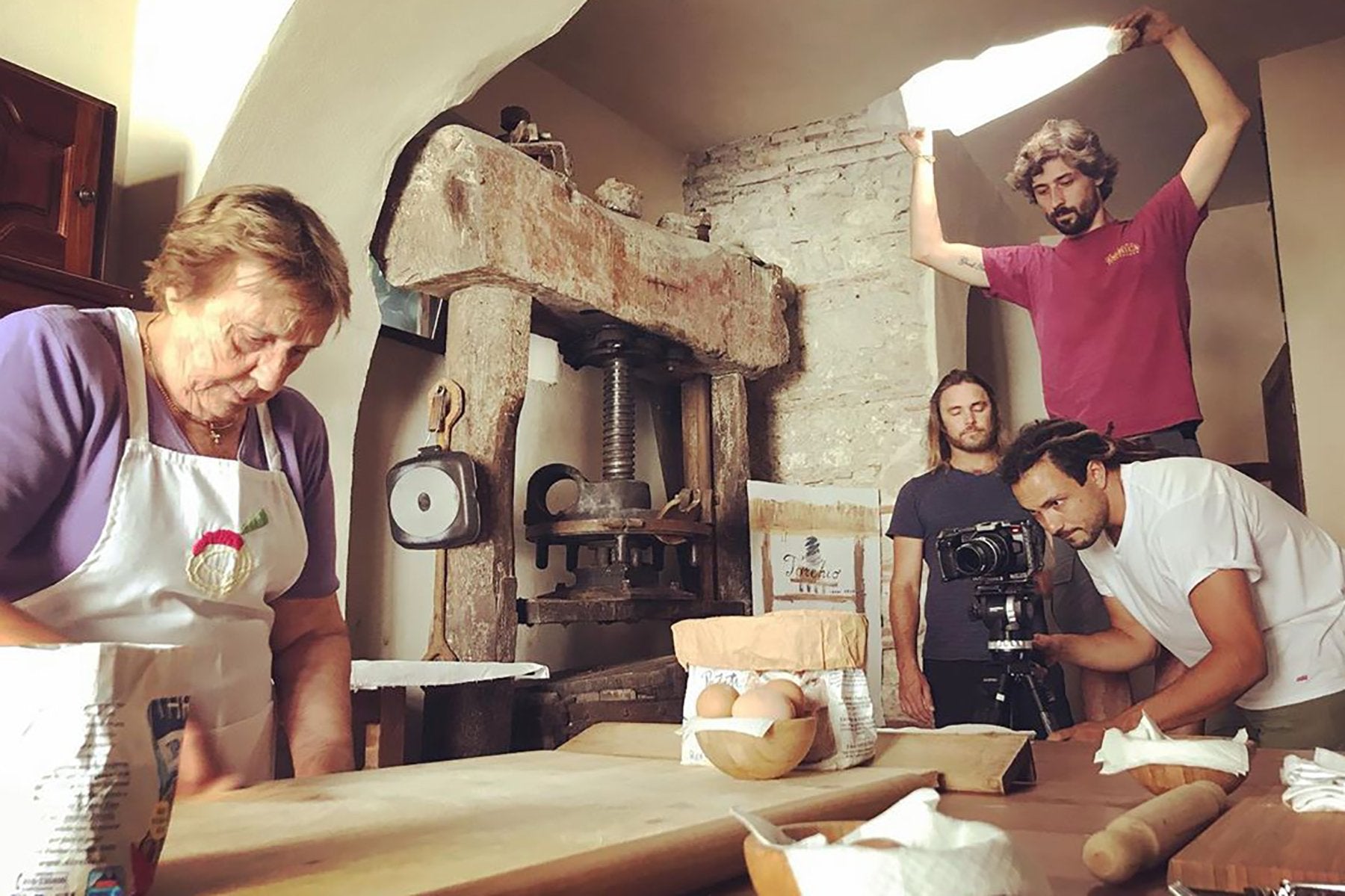
Before the pandemic struck her small village outside of Rome, 84-year-old Nonna Nerina hosted intimate cooking classes with her granddaughter, Chiara. The charismatic duo loved sharing Nonna’s decades-old pasta-making traditions and stories of Old World Italy with intrepid tourists, who arrived in vanloads specifically for Nonna’s classes.
One such tourist was Brent Freeman of Stealth Ventures, who never forgot the soul-warming experience. When the pandemic hit and dried up the local tourism industry, Brent helped Nonna and Chiara pivot to a livestream business. Within two hours he’d spun up their ecommerce site on Shopify, Nonna Live. Nonna now reaches a global audience of foodies stuck at home, and has been featured on Today, Good Morning America, and Eating Well (to name a few). Besides public and private virtual classes, Nonna Live also sells their preferred cooking supplies and ingredients.
4. Partake Foods
 After Denise Woodward discovered her daughter’s severe food allergies, she struggled to find allergen-free baked goods that tasted on par with regular ones. So Denise did what any devoted mother would do: she experimented tirelessly with recipes until she found one that won her daughter’s stamp of approval.
After Denise Woodward discovered her daughter’s severe food allergies, she struggled to find allergen-free baked goods that tasted on par with regular ones. So Denise did what any devoted mother would do: she experimented tirelessly with recipes until she found one that won her daughter’s stamp of approval.
And so began Partake Foods, a small business that sells gluten-free, vegan, non-GMO cookies free of the top allergens. But her journey was not without its challenges, including facing over 80 rejections from investors before nabbing a multi-million dollar deal with Jay-Z. She also struggled with juggling her caretaking responsibilities with business duties during the pandemic.
When asked what keeps her going, Denise credits her 5-year-old daughter: “To look her in the eyes and tell her that this company I started because ‘I love you so much and want something better for you,’ and then quitting just because people rejected me...I just couldn’t do that.”
5. Alivia
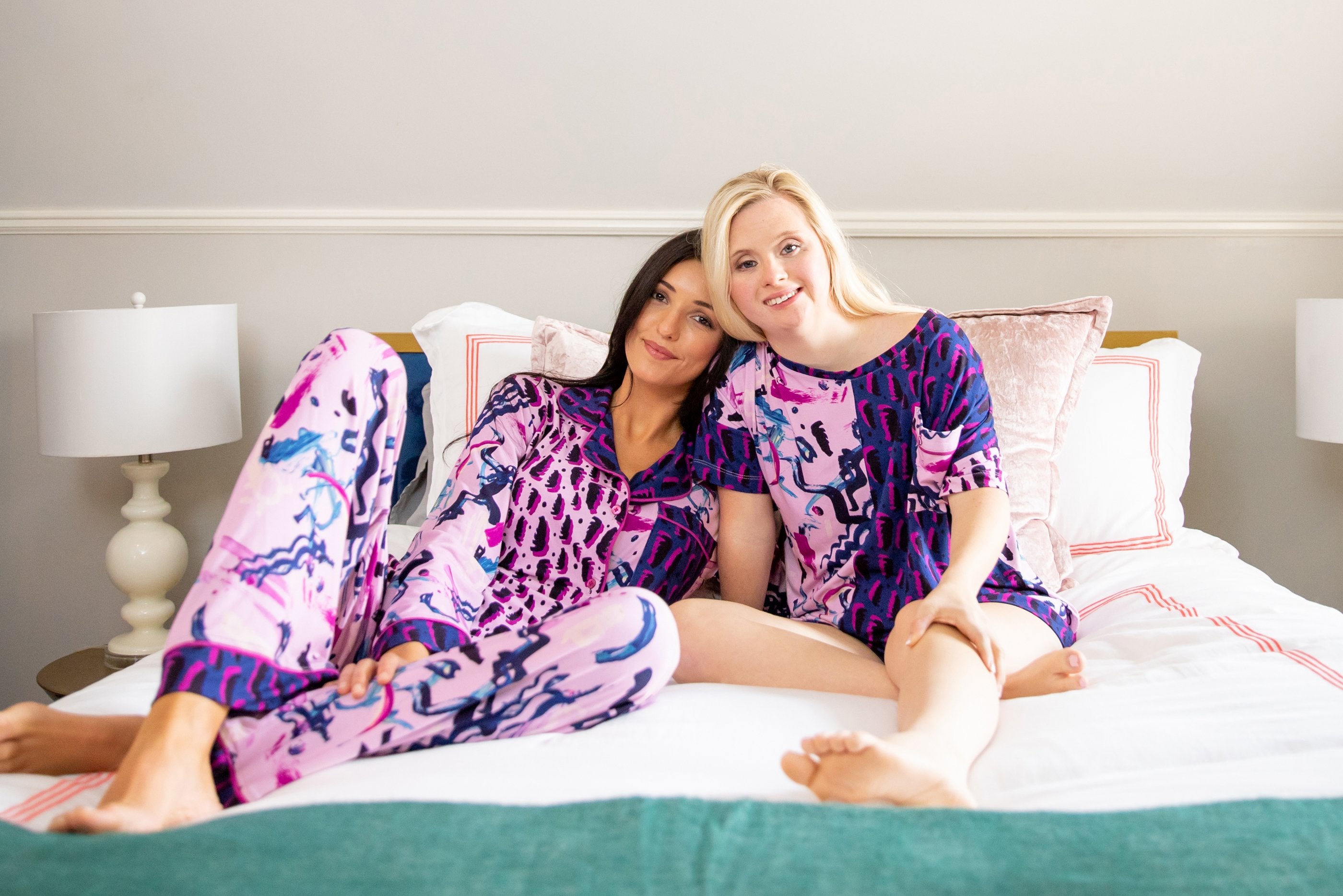 Jovana Mullins was a fashion designer with a soft spot for volunteerism and social work after work hours. Through entrepreneurship, she discovered a way for her two worlds to collide. While volunteering to teach art to students with autism, she marveled at their bold, expressive art and envisioned their work on garments. And that’s exactly what she sells through her small business brand, Alivia.
Jovana Mullins was a fashion designer with a soft spot for volunteerism and social work after work hours. Through entrepreneurship, she discovered a way for her two worlds to collide. While volunteering to teach art to students with autism, she marveled at their bold, expressive art and envisioned their work on garments. And that’s exactly what she sells through her small business brand, Alivia.
Alivia gives a voice and platform to those with disabilities, sharing their work and stories on every piece of clothing the brand sells. “There’s a QR code on the hang tag as well as inside the garment,” Jovana says. “You can scan it to learn more about the artists as well as see their original artwork.” Alivia pays the artists to license their work and 10% of every sale is donated to the organization where they are supported.
When the pandemic hit and most of us traded in dresses for sweatpants, Jovana quickly pivoted to a pajama line. Jovana has been through her ups and downs in the past couple years, but thanks to her social-driven initiative, Alivia thrived in 2020.
6. Trailblazers of the breast cancer community
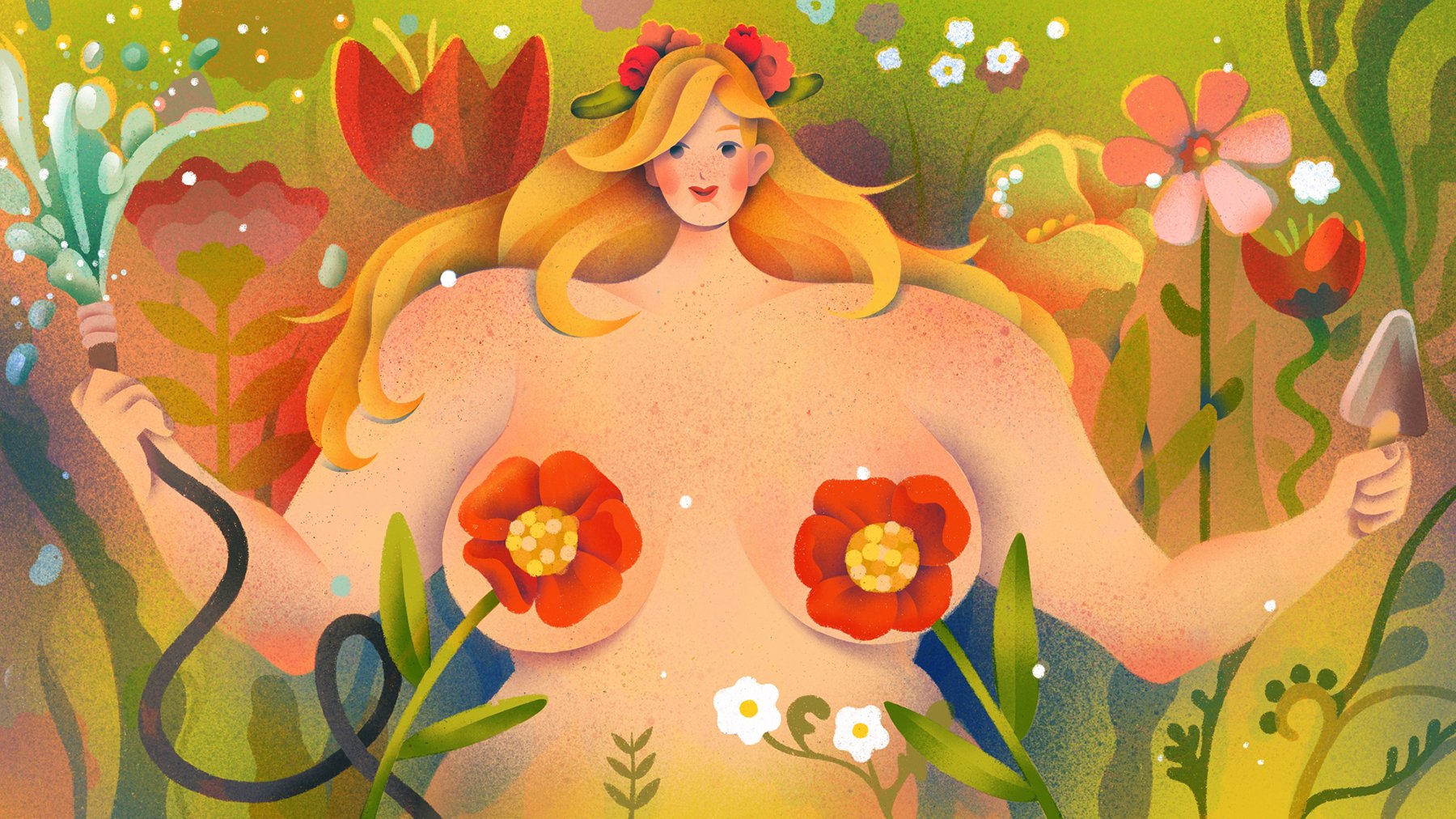 Sometimes, it takes a survivor to spot the golden opportunities. In this roundup, we interview three breast cancer survivors creating products for an underserved community with unique needs: breast cancer survivors under 40.
Sometimes, it takes a survivor to spot the golden opportunities. In this roundup, we interview three breast cancer survivors creating products for an underserved community with unique needs: breast cancer survivors under 40.
From designing intimates like bras for patients who underwent reconstructive surgery, to finding alternatives to nipple tattoos, these women are bringing a new kind of awareness and support to their community: identity.
“You’re used to dolling yourself up, but your hair is missing, your eyelashes are missing, your eyebrows are missing, and now you don’t have any breasts,” says Dana Onofree, founder of Anaono who learned of her diagnosis a day before her 28th birthday. ”Your slate is wiped clean.”
It’s not a pink ribbon—it’s frank conversation, education, and actual solutions to help young survivors regain a sense of wholeness in the aftermath of cancer.
7. Phenomenal
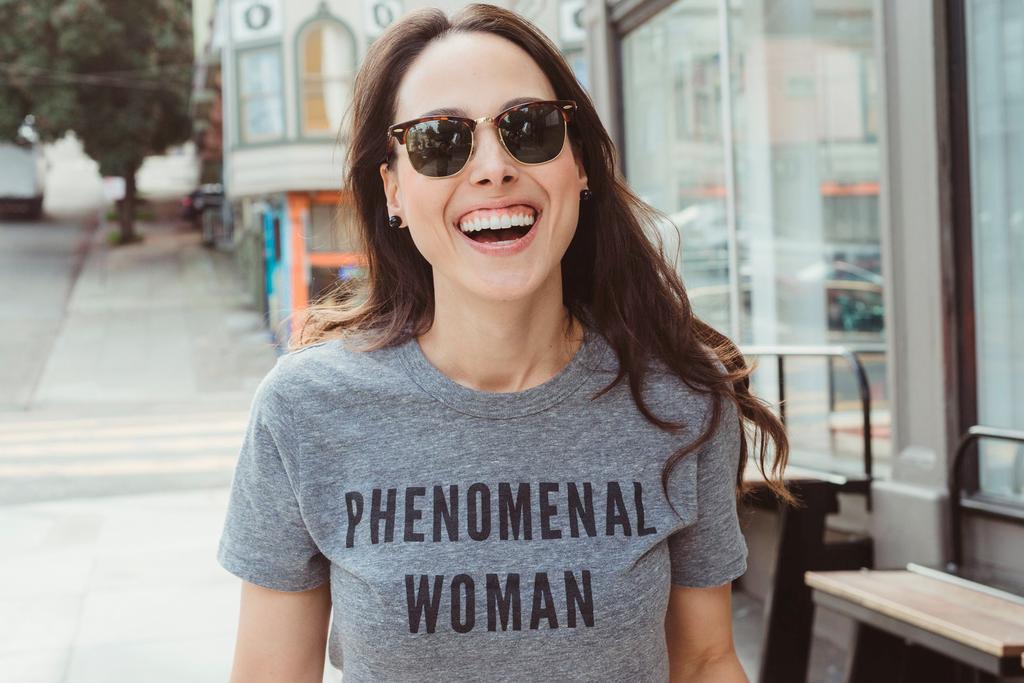 Meena Harris was a successful corporate lawyer when a T-shirt altered the course of her life. It was 2016, the year Trump took office, and Meena wanted to make a statement about her fellow women—despite the backwards rhetoric of the time. Inspired by her favorite Maya Angelou poem, she printed simple, vibrant shirts that read "Phenomenal Woman."
Meena Harris was a successful corporate lawyer when a T-shirt altered the course of her life. It was 2016, the year Trump took office, and Meena wanted to make a statement about her fellow women—despite the backwards rhetoric of the time. Inspired by her favorite Maya Angelou poem, she printed simple, vibrant shirts that read "Phenomenal Woman."
The rest is history: her shirts blew up on social media, were donned by countless celebrities, and Meena quit her job to start her social impact company, Phenomenal. In the years since she has launched issue-driven apparel—such as “Phenomenally Black” and “Pro-Vaxxer”—and donated the proceeds to related non-profits. This year Meena is casting a wider net with her product lineup, channeling her powerful messages through childrens’ books and Netflix collaborations.
As for an issue close to her heart, supporting fellow women entrepreneurs, Meena urges more cultural and systemic changes to support this budding group.
"The best entrepreneurs are problem solvers and people who are able to fail and learn and iterate and innovate off of that. But I don’t think we allow women entrepreneurs to make mistakes and to fail as we should be," Meena says. "And when we don’t, we’re excluding them from opportunity."
8. Founders who profit and build up their communities
 Beyond the products and services they sell, founders of socially responsible businesses and social enterprises create systems that impact long-lasting change. They’re driven by moral imperatives rather than pure profit, and keep their community, economy, and environment in mind.
Beyond the products and services they sell, founders of socially responsible businesses and social enterprises create systems that impact long-lasting change. They’re driven by moral imperatives rather than pure profit, and keep their community, economy, and environment in mind.
In this roundup, we spoke to nine amazing entrepreneurs, most of whom were women. We loved hearing about Patrice Mousseau, a former-journalist and single mom who created a natural skincare company called Satya. Patrice employs stay-at-home moms in different regions to deliver her products: a win-win for her community and her balance sheet. She also offsets all of her products.
Another inspiration is Melanie Ang, founder of Backcountry Wok—dehydrated Asian and vegan meals packaged with 100% compostable, eco-friendly materials. The marine biology student didn’t follow a business playbook, instead she leaned into her sustainability expertise to create the perfect meal for a camping trip, and instinctively picked up small business skills along the way.
Read about socially-responsible owners
Feature image by Julia DuFossé
Topics:
Join 446,005 entrepreneurs who already have a head start.
Get free online marketing tips and resources delivered directly to your inbox.
Thanks for subscribing
You’ll start receiving free tips and resources soon. In the meantime, start building your store with a free 14-day trial of Shopify.





